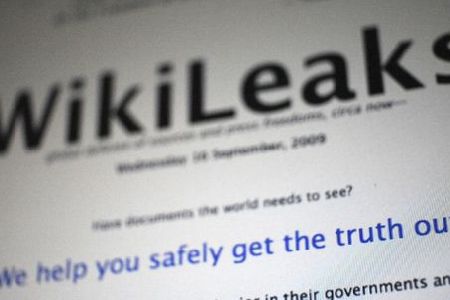US uses its embassies for espionage

Whistleblower website WikiLeaks has released over 250,000 classified US documents, some of which unveil that the US embassies across the world are part of an espionage network.
The new documents touch on issues ranging from US involvement in spying against UN to harsh criticism of war in Afghanistan.
According to some excerpts of the documents obtained from the US embassy cables and published on Sunday evening in The New York Times, The Guardian, and the German magazine Der Speigel, the United States has been using its embassies around the world as part of a global espionage network by recruiting some diplomats to spy on certain political leaders and different individuals with sensitive information on key international issues.
The leaked files indicate that since last year the United States has been engaged in a spying campaign against UN’s secretariat under the US Secretary of State’s order.
The files also reveal that Washington coerced its allies around the world into distancing themselves from Iran as part of US policy to isolate Tehran.
The Guardian newspaper leaked some excerpts of the secret documents including alleged links between the Russian government and organized crime, harsh criticism of the military operations in the nine-year-old war in Afghanistan as well claims of inappropriate behavior by a member of the British royal family.
The release of over 250,000 classified documents has already angered the US, with State Department spokesman P. J. Crowley denouncing the WikiLeaks’ move as irresponsible.
“We are all bracing for what may be coming and condemn WikiLeaks for the release of classified material,” said Crowley, adding that “it will place lives and interests at risk. It is irresponsible.”
The state department has warned WikiLeaks founder Julian Assange about obtaining sensitive information through illegal means, adding that the leakage would jeopardize “the lives of countless innocent individuals … ongoing military operations … and cooperation between countries.”
However, the bombshell has had loud political resonance in White House and also in Whitehall and Westminster where British authorities have come under harsher scrutiny, namely Prime Minster David Cameron, whose requests for specific intelligence about individual MPs as well as the handling of the War in Afghanistan have been criticized.
The documents also shed light on the US administration’s ’embarrassing’ assessment of the current British prime minister.
According to The Guardian, the cables have also revealed US Secretary of State Hillary Clinton’s activities under the US President Barack Obama’s administration, as well as thousands of files from the George Bush presidency, alluding to some secret “human intelligence directives” issued on behalf of Clinton or her predecessor, Condoleezza Rice, who instructed some officials to gather information on military installations, weapons markings, vehicle details of political leaders as well as iris scans, fingerprints and DNA.
But, the WikiLeaks’ mentioning of the leadership of the United Nations has set off an uproar in Washington as some documents clearly divulge that under the directive issued by Clinton and her predecessor, the United States spied on top UN officials and their staff by acquiring details of “private VIP networks used for official communication, to include upgrades, security measures, passwords, personal encryption keys” in telephone communications and IT systems they used.
Meanwhile, the WikiLeaks announced on Sunday that its website has come under cyber attack ahead of the release, RIA Novosti reported.
The revelation comes as the website posted last month some 400,000 secret documents about the war in Iraq.
Sweden has issued an international arrest warrant for Assange over an alleged rape and sexual assault.
Assange, however, has repeatedly dismissed the charges, saying that they are part of “a smear campaign” against his website.







